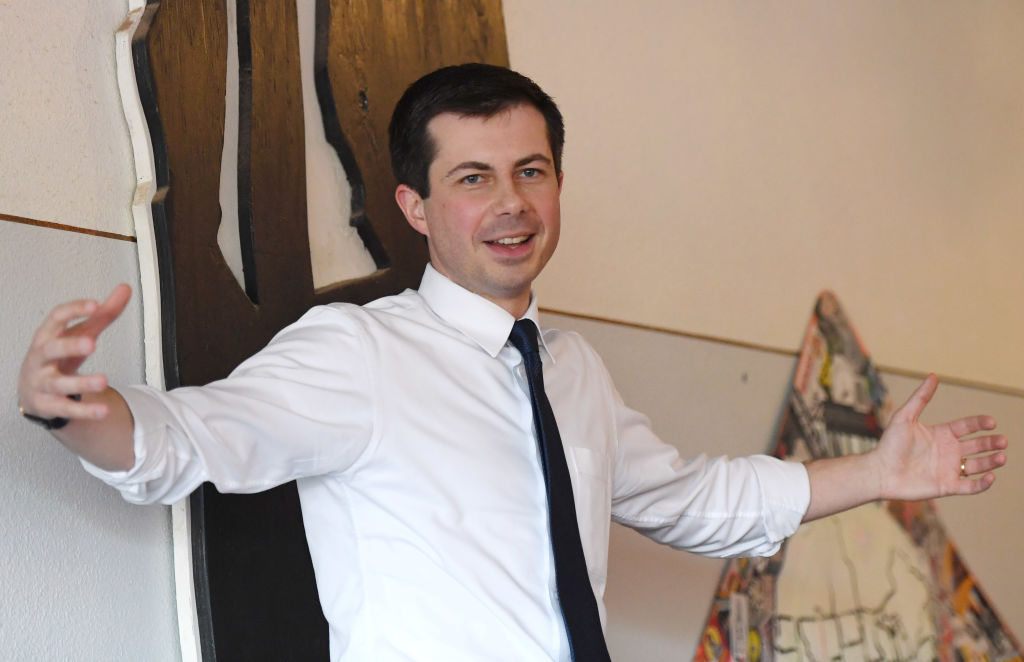Religious faith may be declining in America but it is still a cultural force to be reckoned with, looming large in any general election cycle. Courting religious voters remains a factor in the calculus of any prospective presidential candidate, especially as neither party seems a natural home for many of them.
Americans are actually losing their religion rather faster than their faith. A recent poll showed that ‘nones’ – those without a religious affiliation – are now the country’s largest group for the first time: Americans are increasingly defining their own faith, and not asking a church to do it for them.
In this landscape, what a ‘Christian’ believes as a core value is suddenly malleable and open to influences from all sides.
Much in the way famous actors can command a wide audience for even the most ill-informed political opinions, politicians in the national spotlight can now opine about theology to an increasing slice of the electorate willing to give them a hearing. This week, one of the tangled mess of Democratic primary candidates made an unexpected bid for the pulpit.
Pete Buttigieg has been talking about his religion a lot in the last few days. Specifically, he has been talking about his Christianity, and what it should mean for voters and other politicians.
Over the weekend, Mayor Pete (as he is being marketed) told a Victory Fund event that his marriage had made him a better man, adding that ‘Yes, Mr Vice President, it has brought me closer to God.’
There is no record of Mike Pence asking him about his relationship with God or his marriage to Chasten Buttigieg, née Glezman. But the Mayor of South Bend wants ‘the Mike Pences of this world’ to know that on questions of same-sex marriage or sexual morality, especially as they apply to laws protecting religious liberty, ‘your quarrel, sir, is with my creator.’
Referring those who disagree with you to the Almighty isn’t a political statement, it’s a theological one. Mayor Pete isn’t defending his politics from other people’s religion, he is using his politics to challenge their religious faith.
In a later appearance on Meet the Press, Buttigieg took aim at the ‘unbelievable hypocrisy’ of President Trump’s religious beliefs and, by direct implication, those of his evangelical supporters.
Trump’s policies, according to Buttigieg, are ‘not consistent with anything that I hear in scripture or in church, where it’s about lifting up the least among us and taking care of strangers, which is another word for immigrants, and making sure that you’re focusing your effort on the poor.’
But if what Mayor Pete hears in church about immigration policy should inform the policy agenda, he is clear there are limits.
When asked about abortion, Buttigieg earnestly noted that ‘this is a moral question, it is not going to be settled by science.’
Moral questions, he said, shouldn’t be settled by ‘a male government official imposing his interpretation of his religion.’
One could be forgiven for assuming Mayor Pete had lapsed into an ‘unbelievable hypocrisy’ by suggesting that his (male government official) interpretation of his religion should bear on policy questions of immigration and economics but not abortion.
A cynic might conclude that Mayor Pete was open to a strictly selective application of religious morality in the public sphere. But this week he returned to his comments about Pence and LGBT rights, offering an interesting alternative take.
‘All of us deserve an equal claim on the blessings of life in this country; just because you’re LGBTQ doesn’t mean it’s OK to discriminate against you,’ he said during a stop in Washington state.
‘It’s time for us to move on toward a more inclusive and more humane vision of faith than what this vice president represents.’ Note that: a more humane faith – not politics.
Perhaps having intuited that it would be easier to change Christian doctrine than Democratic party policy, Pastor Pete is looking to lead a reformation. It is an interesting tactic.
Large sections of the electorate, notably pro-life voters and those with traditional views on marriage, find themselves in opposition to – even excluded from – the Democratic party over their religiously based beliefs.
Conversely, it is no novelty to observe that many of these same voters are not entirely at home in the Republican party either, with many favoring a less business centered approach to tax reform, an end the death penalty, or even a more involved government role in health care.
For years, the misalignment of both parties with religious voters has left many hoping one of them might open up to accommodate the full spectrum of their priorities. Pastor Pete seems to be instead calling on believers to broaden their faith to accommodate his party’s platform.
Despite the decline of religious affiliation in America, it remains a fundamentally religious country. Voters weigh the candidates and policies emotionally as much or more as they do technically. They still want to know that God is on their side.
Great swathes of America, mostly in states like Indiana, have yet to fully shake the traditional values with which they were raised.
In Buttigieg, they have on offer a candidate who is unselfconsciously telling them God is a Democrat, and Pence can take it up with Him. Pastor Pete’s church is woke but reasonably spoken, offering a theology of identity politics which asks nothing of traditional believers but their vote, and that they get out of the way.
It remains to be seen how far Mayor Pete is willing to go in bringing his own brand of Sunday school into the town hall, if other candidates might follow suit, and if he can make believers into converts.
But if he proves successful, it could change the dynamic of the primary campaign, and even the general election.
Americans have long been accustomed to politicians getting religion, but can candidates now convince an increasingly unaffiliated faithful to believe in their politics?


















